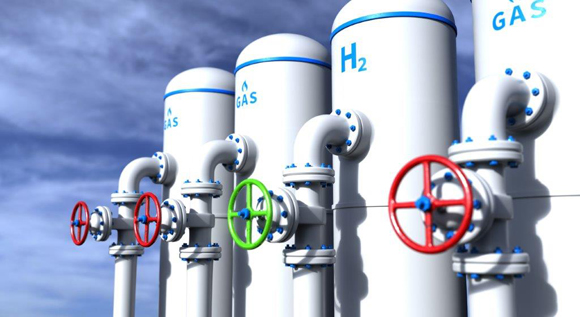Germany becoming more energy-independent
A hydrogen alliance with Canada and the secured supply of LNG terminals off the North Sea coast help Germany on its way to increased energy independence.
 © Adobe Stock / Alexander Limbach
© Adobe Stock / Alexander Limbach
Germany wants to move away from Russian pipeline gas. The background to this is Russia’s war of aggression against Ukraine and the resulting energy crisis. Two more building blocks on the way to increased energy independence were added in the second half of August:
Security of supply for LNG terminals
In mid-August, the Federal Ministry for Economic Affairs and Climate Action and the companies Uniper, RWE and EnBW/VNG signed a Memorandum of Understanding (MoU), on the LNG supply of floating liquefied natural gas terminals, (FSRUs, or Floating Storage and Regasification Units), in Brunsbüttel and Wilhelmshaven. This is to create planning certainty for the supply and operation of the specialised vessels that serve as terminals and to regasify liquefied gas. The aim is to make full use of these specialised vessels as soon as they are put into operation in winter 2022/23. The companies have committed themselves to providing the necessary quantities of gas.
Federal Minister for Economic Affairs and Climate Action Robert Habeck said, „Imports of liquefied natural gas reduce our dependency on Russian pipeline gas. The MoU provides the necessary certainty that full use can be made of these FSRUs in the coming two winters, to make the greatest contribution possible to security of supply in Germany and in Europe.”
Hydrogen Alliance between Canada and Germany
The roll-out of green hydrogen is also making further progress. On 23 August, Federal Minister Habeck and the Canadian Minister of Natural Resources, Jonathan Wilkinson, signed the Canada-Germany Hydrogen Alliance, which aims to further expand their existing cooperation on hydrogen in the context of the German-Canadian Energy Partnership.
In the context of the agreement, Canada will step up the production of hydrogen, particularly sourced from renewable energy, for export to Germany. Germany will support potential importers and consumers of green hydrogen. The first shipments from Canada to Germany are to begin as early as 2025. The signing of the agreement marked the conclusion of a three-day visit to Canada, and was attended by Federal Chancellor Olaf Scholz and Canadian Prime Minister Justin Trudeau.

